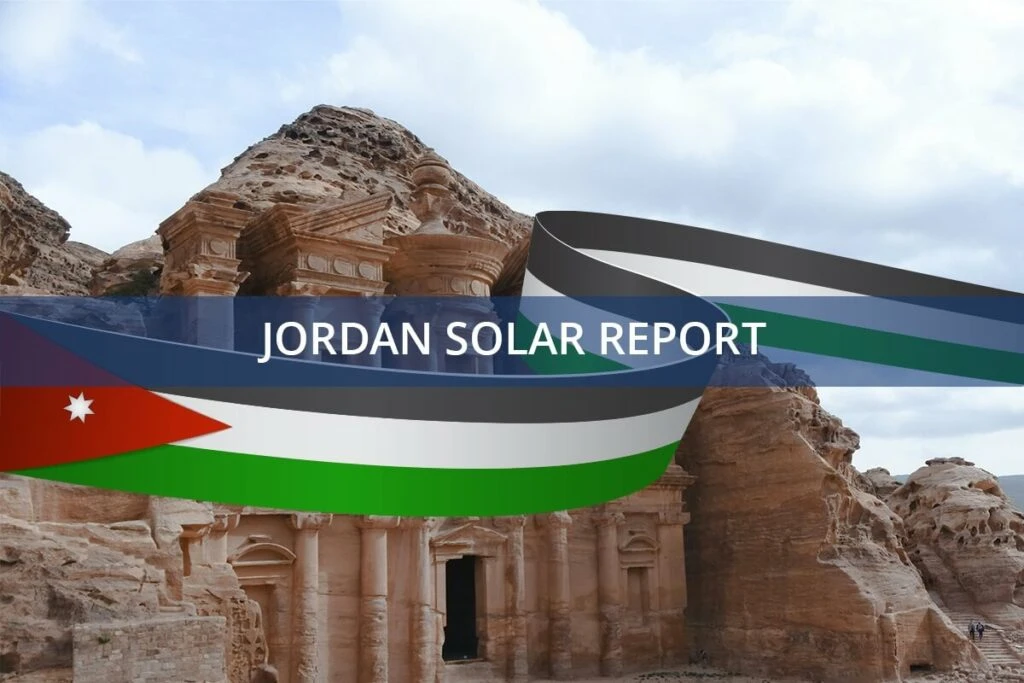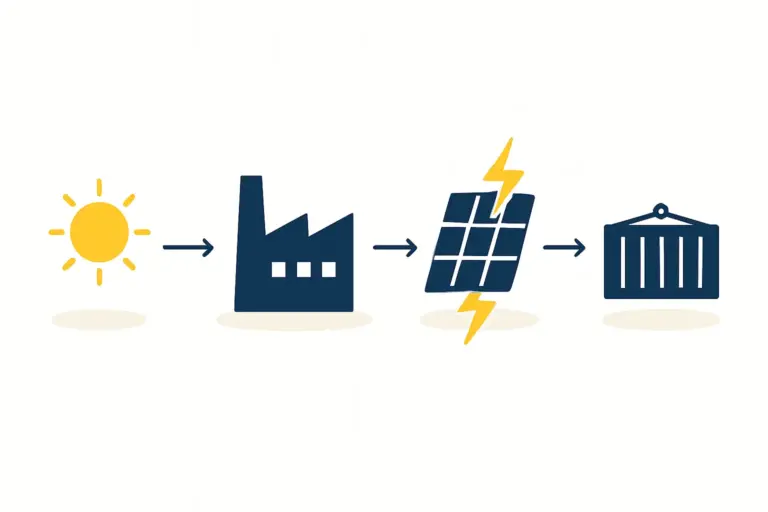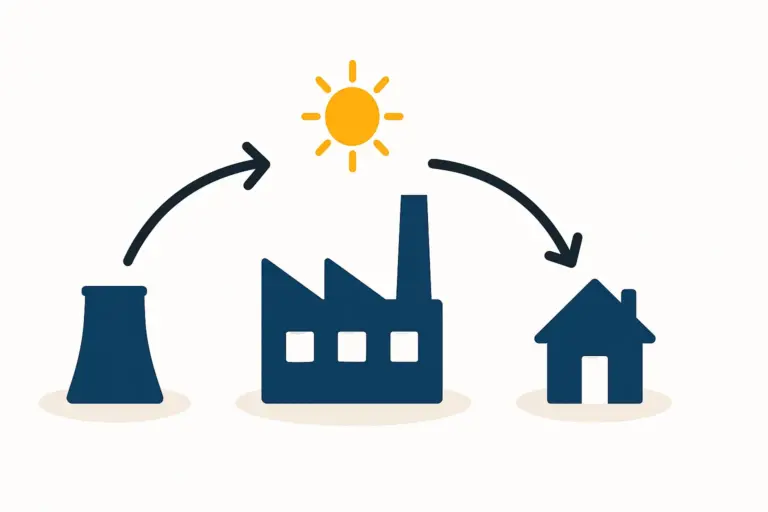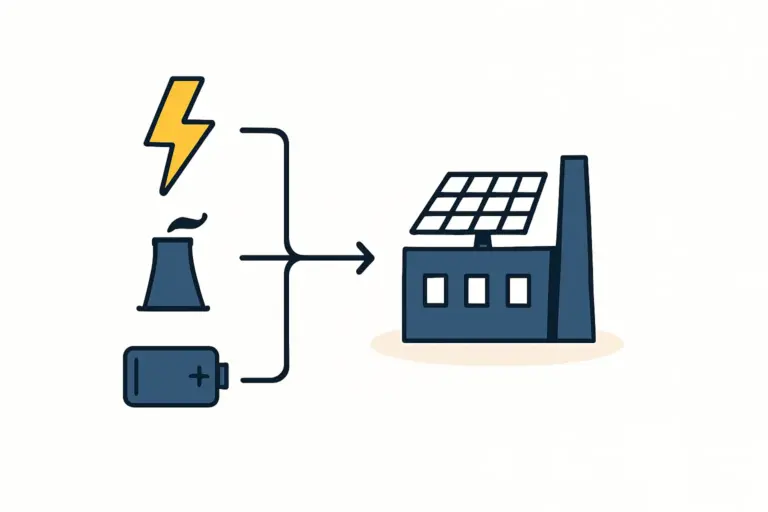An entrepreneur in Amman has nearly finished setting up a 50 MW solar module assembly line. The machinery is installed, the staff is trained, and sample modules have been produced. Yet a critical hurdle remains before a single module can be sold or installed in Jordan: securing a Certificate of Conformity from the Jordan Standards and Metrology Organization (JSMO).
This final, non-negotiable step often brings significant delays and unforeseen costs for newcomers to the industry. Navigating national standards is a crucial part of turning a manufacturing facility into a commercially viable enterprise.
For any business professional planning to produce solar modules in Jordan, understanding the JSMO certification process isn’t just an administrative task—it’s a cornerstone of the business plan. This article outlines the key requirements, testing protocols, and procedural steps for achieving JSMO certification.
What is JSMO and Why is it Critical for Solar Manufacturers in Jordan?
The Jordan Standards and Metrology Organization (JSMO) is the national body responsible for ensuring that products sold within the country meet specific quality, safety, and performance standards. Its role is to protect consumers, enhance public safety, and promote the competitiveness of the national economy.
For the solar energy sector, JSMO’s oversight is fundamental. As Jordan pursues its ambitious renewable energy targets under initiatives like the Jordan Vision 2025, the quality and reliability of locally produced solar modules has become a national priority.
For a manufacturer, JSMO certification provides several key advantages:
-
Market Access: Certification is a legal prerequisite. Without a valid JSMO Certificate of Conformity, solar modules cannot be legally sold or installed on projects within Jordan.
-
Quality Assurance: The certificate signals to customers, financiers, and government bodies that the modules adhere to established international safety and performance benchmarks.
-
Brand Credibility: Earning this certification builds trust and differentiates a local manufacturer from competitors who may not meet the same rigorous criteria.
In essence, JSMO acts as the gatekeeper to the Jordanian solar market, ensuring that only products verified for safety and performance can enter.
The Foundation of JSMO Approval: Understanding IEC Standards
JSMO does not create its solar module standards in a vacuum. Instead, its requirements are harmonized with globally recognized benchmarks from the International Electrotechnical Commission (IEC). This alignment ensures that Jordanian-made modules are tested against the same criteria as those produced in Germany, China, or the United States.
The two most important international standards for crystalline silicon solar modules are:
-
IEC 61215: Titled “Terrestrial photovoltaic (PV) modules – Design qualification and type approval,” this standard focuses on the performance and durability of the module. It involves tests that simulate long-term exposure to various weather conditions like extreme temperatures, humidity, and UV radiation.
-
IEC 61730: This standard, “Photovoltaic (PV) module safety qualification,” is concerned with preventing electrical shock, fire hazards, and personal injury over the module’s lifetime.
Meeting the requirements of these two IEC standards is the first major step toward JSMO certification. An internal link to a more detailed article on solar panel manufacturing certifications can provide further context on global standards.
The JSMO Certification Pathway: A Step-by-Step Overview
While the specifics can vary, the certification process generally follows a structured path. Entrepreneurs should anticipate these stages and incorporate them into their project timeline and budget from the very beginning.
Step 1: Preparation of Technical Documentation
Before any testing begins, you must compile a comprehensive technical file that serves as the blueprint for your product and manufacturing process. Key documents include:
-
Technical Datasheet: Specifies the module’s electrical characteristics, dimensions, materials, and performance ratings.
-
Bill of Materials (BOM): A detailed list of every component used, from solar cells and EVA film to the junction box and frame.
-
Factory Production Control (FPC) Manual: This critical document details your entire quality management system, outlining procedures for incoming material inspection, in-process quality checks, final product testing, and equipment calibration. Based on experience from J.v.G. turnkey projects, developing a robust FPC manual is often the most challenging documentation task for new manufacturers.
Step 2: Type Testing with an Accredited Laboratory
Once the documentation is ready, sample modules from your production line must be sent for independent testing. Since specialized PV testing laboratories may not be available locally in every country, this often means shipping modules to an internationally accredited lab in Europe, Asia, or North America.
The laboratory will conduct a series of rigorous tests based on IEC 61215 and IEC 61730 protocols, including:
-
Thermal Cycling: The module is subjected to 200 cycles of extreme temperature changes (e.g., -40°C to +85°C) to test the durability of soldered connections and materials.
-
Damp Heat Test: The module is exposed to 1,000 hours of high temperature (85°C) and high humidity (85%) to check for moisture ingress and delamination.
-
Mechanical Load Test: Pressure is applied to the front and back of the module to simulate wind and snow loads.
-
Hot-Spot Endurance Test: This test identifies potential overheating issues that could damage the module or create a fire hazard.

Upon successful completion, the laboratory issues detailed test reports that provide objective evidence of your module’s compliance with IEC standards.
Step 3: Application Submission to JSMO
The next step is to formally submit your application to JSMO. This package typically includes:
-
The completed application form.
-
The full technical documentation file (datasheet, BOM, FPC manual).
-
The official IEC 61215 and IEC 61730 test reports from the accredited laboratory.
-
Company registration documents.
-
Proof of payment for application fees.
Accuracy and completeness are paramount here, as any missing or incorrect information can cause significant delays.
Step 4: Factory Audit and Inspection
JSMO or a designated third-party inspection body will schedule an audit of your manufacturing facility. The purpose of this visit is to verify that the processes described in your FPC manual are actually being followed.
Inspectors will typically assess:
-
Quality Control Procedures: Are you testing incoming raw materials? Is there a final inspection process, including electroluminescence (EL) testing, for every module?
-
Equipment Calibration: Are your key machines, like the solar module laminator and sun simulator, properly calibrated and maintained?
-
Traceability: Can you trace a finished module back to the specific batches of raw materials used in its construction?
A well-organized factory with documented procedures can usually complete this audit in one or two days.

Step 5: Issuance of the Certificate and Ongoing Surveillance
If your documentation is approved and the factory audit is successful, JSMO will issue the Certificate of Conformity. This certificate grants you the right to sell and install your solar modules in Jordan.
The process doesn’t end here, however. Certification is typically valid for a specific period (e.g., one year), and JSMO will conduct periodic surveillance audits to ensure that quality standards are maintained. This makes certification a commitment to continuous quality, not just a one-time achievement.
Common Challenges and How to Prepare
Entrepreneurs entering the Jordanian solar market should be aware of several common hurdles:
-
High Cost and Logistics of International Testing: The cost of type testing at an accredited lab can be substantial, and shipping modules internationally requires careful logistical planning. These expenses must be factored into the initial solar panel manufacturing plant cost.
-
Underdeveloped Quality Management Systems: Many new businesses focus heavily on production machinery but underestimate the importance of creating and implementing a detailed Factory Production Control system from day one.
-
Navigating Bureaucracy: The application process can seem complex. Working with experienced consultants or local partners who understand JSMO’s requirements can streamline the process significantly.
Frequently Asked Questions (FAQ) about JSMO Certification
How long does the entire JSMO certification process take?
The timeline can vary significantly depending on factors like laboratory testing queues, the completeness of your documentation, and scheduling the factory audit. A realistic estimate is 6 to 12 months from the start of type testing to the issuance of the certificate.
Can I use test reports from any laboratory?
No. The test reports must come from a laboratory that is accredited to ISO/IEC 17025 and recognized by an international body like the IECEE CB Scheme. JSMO maintains a list of acceptable accreditation bodies.
What happens if my factory fails the initial audit?
If the audit reveals non-conformities, the inspection body will provide a report detailing the required corrective actions. You will then be given a specific timeframe to resolve these issues before a follow-up audit is conducted.
Is the JSMO certificate recognized outside of Jordan?
A JSMO certificate is specific to the Jordanian market. However, because it is based on international IEC standards, the underlying test reports can be used to apply for certifications in other countries with similar requirements, potentially speeding up market entry elsewhere.
How much does JSMO certification cost?
Costs include laboratory testing fees, application and certification fees paid to JSMO, and the potential cost of a third-party factory inspection. The total investment can range from tens of thousands to over one hundred thousand US dollars, depending on the laboratory chosen and the complexity of the process.
Your Next Steps in Achieving Market Compliance
Securing JSMO certification is a methodical process that rewards preparation and a commitment to quality. It is not an obstacle to be dealt with at the end of a project, but a strategic objective that should be integrated into the earliest phases of planning your solar panel manufacturing business plan.
By understanding the requirements, aligning production with IEC standards, and documenting every quality control procedure, an entrepreneur can successfully navigate this critical regulatory milestone. Educational resources, such as the structured guidance provided by pvknowhow.com, are designed to help business professionals address these complexities from the outset, transforming a potential barrier into a mark of quality and a key to market success.







